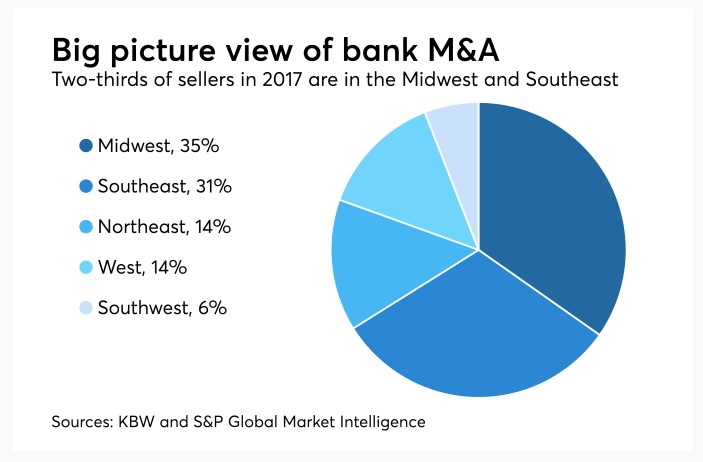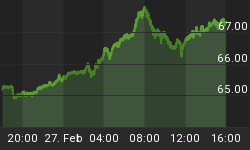While everyone was distracted by ‘Russiagate’, Facebook's data scandal and the Fed's latest interest rate hike, the Senate did something last week that will significantly change the banking industry: it rolled back key regulations that could open the floodgates for a new round of mergers and acquisitions.
It is a move, if it passes the House, that will position 2018 to be the year that banking mergers are resurrected--and smaller banks become big.
The Senate’s vote to roll back the Obama-era Dodd Frank Act would ease regulations on banks by raising the threshold at which they are considered crucial enough to the financial system to be held under greater scrutiny.
In other words, regulations for all but the very largest banks in the U.S. will be relaxed significantly, and those smaller banks that have been avoiding the type of growth that would invite greater oversight will be free to expand—and merge.
Wells Fargo analyst Mike Mayo told CNBC that he would "absolutely expect bank consolidation to accelerate,” if the bill makes it through the House as it would allow banks to “get bigger without the risk of having all sorts of additional oversight.”
Mayo also noted that “scale” is more important than ever, and banks will be quick to jump on this bandwagon.
Last year was a sparse one for Bank M&A activity.
According to Berkshire Hathaway’s Business Wire, 2017 saw only 248 completed bank M&A transactions, down 13 percent from the previous year, and down 16 percent from the five-year average.
The regional breakdown of bank M&A activity was also unbalanced last year:

(Click to enlarge)
According to Reuters data, U.S. bank deals have fallen in number for four years in a row—even as M&A activity overall was on the rise during that time period.
The regulatory environment has been holding deal-making back.
Dodd Frank was meant to protect consumers and the economy in the aftermath of the 2008 financial crisis. In other words, it was meant to stop the type of dangerous lending that set the 2008 financial crisis in motion. But it also involved a huge level of oversight that many felt left all but the largest U.S. banks struggling. Related: Precious Metals Slide Ahead Of Fed’s Interest Rate Decision
The rollback will deregulate 25 of the largest 38 banks in the country by exempting financial companies with less than $250 billion in assets from high-level Federal Reserve scrutiny. The threshold right now is $50 billion, so this is a major leap that means small banks can get a lot bigger.
The CEO of BankUnited, Rajinder Singh, told Reuters earlier that if the House goes for this rollback, “the pressure will be off” and it will “certainly help take a very large impediment out of the way, and you’ll likely see more M&A activity.”
But it may not all be de-regulatory roses for the banking industry.
A new report suggests that banks may soon be in for a big squeeze, according to the Wall Street Journal. The newly released reported by Bain & Co. warns that competition for deposits will intensify as rates rise and customers start shopping around more. “Banks have forgotten what battling for primacy and battling for true low-cost deposits looks like,” WSJ quoted Bain & Co. partner Joe Fielding as saying.
Others also warn that while banks have indeed had a string of good news in the pipeline, the regulatory rollback could fail to meet investors’ expectations for small and mid-size lenders.
By Josh Owens for Safehaven.com
More Top Reads From Safehaven.com:
















